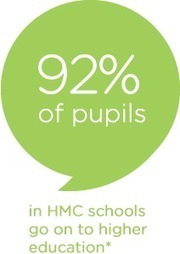“Like applying a bandage to lung cancer.”
That’s how Dr Martin Stephen last week described the idea of allowing disadvantaged students into top universities when they’re an A-level grade or two below the usual threshold.
Dr Martin Stephen is a former chairman of the Headmasters’ and Headmistresses’ Conference (HHC) and ex high master of St Paul’s School in London. He was responding to Bahram Bekhradnia expressing dismay that, in his time as director of the Higher Education Policy Institute, the top universities had remained “as socially exclusive as ever“.
Mr Bekhradnia suggested that the UK should follow US institutions’ lead in seeking to create cohorts that “represent wider society as far as possible,” obsessing less about academic attainment at the point of entry.
For Dr Stephens, such a move would let low-achieving schools ‘off the hook’. It’s social engineering gone made, or whatever.
“Our schools are not helping disadvantaged children to achieve respectable grades and these things don’t do anything about that problem,” he complained.
There are several problems with this position. First, a good deal of one-way evidence tells us that state schools pupils actually outperform independent school students once they reach university. Second, we know that state school applicants are less likely to be offered a place at Russell Group universities than independent school applicants with the same grades, even when ‘facilitating subjects’ are controlled for. Third, it is questionable whether low-achieving schools are incentivised by their students’ progression rates to top universities in anything like the way Dr Stephens implies.
But more disturbing than the views being represented are the metaphors increasingly being traded by those with vested interests.
Is academic under-performance, and the schooling system responsible for it, really like lung cancer? Or are such schools actually working hard to raise attainment among young people with multiple disadvantages, social problems and often chaotic home lives? The latest PISA findings suggest that socioeconomic background is the key determinant of educational success, not school type.
Note the similarly belligerent response to a recent report from the Institute for Fiscal Studies, who found that England’s grammar schools were now four times more likely to admit private school children than those on free school meals. This time it was the turn of Robert McCartney, chairman of the National Grammar School Association (NGSA), to return fire:
“Many, many parents from deprived areas, including what is generally called the dependency classes, are essentially not particularly interested in any form of academic education,” said Mr McCartney. “Their interests are directed towards pop culture, sports.”
Naturally, the HHC, NGSA and other such organisation are bound to defend their market edge. Many independent and selective schools actively recruit on promises of entry to prestigious universities.
But should this defence spill over into unsubstantiated slurs against those from less advantaged communities? Poorer parents share the same aspirations for their children as their wealthier counterparts. It helps no-one to liken low-attainment schools to horrible diseases.
Let’s debate the evidence and leave the name-calling in the playground.


